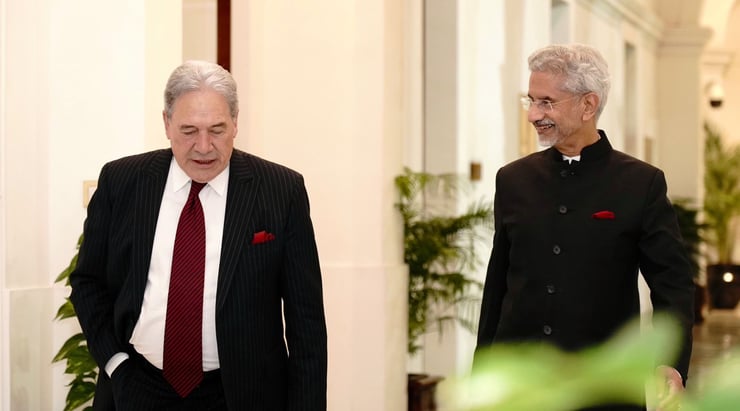Peters Sets Stage For Better NZ-India Relations

Deputy Prime Minister and Minister of Foreign Affairs Winston Peters’ recent visit to India,
intended to bolster ties between the two nations, has ignited both praise and controversy.
Amidst discussions spanning trade, security, and cultural exchange, Peters’ remarks on the
sensitive issue of a Sikh leader’s killing in Canada have stirred debate. However, rather than
viewing this incident as a setback, it presents an opportunity for a nuanced re-evaluation of
India-New Zealand relations.
The focal point of contention arose when Peters, in an interview with The Indian Express,
expressed scepticism regarding conclusive evidence linking Indian agents to the
assassination of a Sikh separatist in Canada. His cautious stance, perceived by some as
questioning the credibility of Canada’s allegations, raised eyebrows because it potentially
alluded to New Zealand not singing from the same song sheet as the Five Eyes intelligence
alliance, of which Canada and New Zealand are members. Others saw it as something that
might be music to India’s ears amidst the mostly veiled accusations it has received from
Canada.
On the contrary, Peters’ remarks, though initially interpreted as provocative, signal a
commitment to transparency and accountability within the Five Eyes alliance. His insistence
on tangible evidence before drawing conclusions exemplifies the principles of fair judgment
and impartiality—values fundamental to effective diplomatic discourse.
Peters’ subsequent clarification, reaffirming New Zealand’s unchanged stance on the matter
and stressing the importance of allowing ongoing criminal investigations to run their course,
demonstrates a commitment to international norms and legal processes. By urging restraint
and patience, Peters underscores the significance of preserving diplomatic integrity amidst
complex geopolitical dynamics.
The reactions to Peters’ comments underscore the intricacies inherent in diplomatic
relations, particularly in matters concerning security and international cooperation. Indeed,
the controversy surrounding Peters’ remarks presents an opportunity for introspection and
recalibration. Rather than viewing it as a diplomatic misstep, it should rather be seen as a
catalyst for deeper engagement and understanding between India and New Zealand. By
addressing contentious issues with candour and diplomacy, both nations can foster a
relationship grounded in mutual respect and cooperation.
Peters’ visit to India, characterised by high-level meetings and discussions spanning various
sectors, signifies a broader commitment to enhancing bilateral ties. From discussions on
strategic security challenges in the Indo-Pacific region to exploring opportunities for
economic partnership, the visit underscores a shared commitment to mutual growth and
prosperity.
The Foreign Minister’s engagements with Indian officials, including External Affairs Minister
Subrahmanyam Jaishankar and Vice President Jagdeep Dhankhar, reflect a mutual
recognition of the strategic importance of India-New Zealand relations. By emphasising
collaboration on issues ranging from climate change to trade and cultural exchange, both
nations signal a desire for a multifaceted partnership rooted in shared values and
aspirations.
Peters’ interactions with representatives from the dynamic state of Gujarat highlight the
importance of engaging with Indian states to maximize economic cooperation and strategic
alignment. A large part of the Indian diaspora in New Zealand hails from this western Indian
state and many have made their home here for more than a century, while yet maintaining
deep ties with their places of origin in the state. In that sense, choosing Gujarat as part of
his India visit was eminently sensible. Also, as India continues its trajectory of economic
growth and development, tapping into regional opportunities becomes imperative for
fostering robust and sustainable bilateral relations.
Winston Peters' comments may have sparked controversy, as they have done many times
throughout his long political career in this country, but they also offer a valuable
opportunity for reflection and dialogue especially with India. Relations between the two
countries have flatlined for at least a decade particularly during the Labour years. With
Winston Peters’ statesmanship, seniority and Mana, there is every chance that the
relationship will now grow.
By navigating the complexities of international relations with diplomacy and pragmatism,
both India and New Zealand can chart a course towards a more resilient and dynamic
partnership. As Peters aptly stated, “New Zealand and India are two countries that can,
should, and will be doing more together.”




-2.jpg)